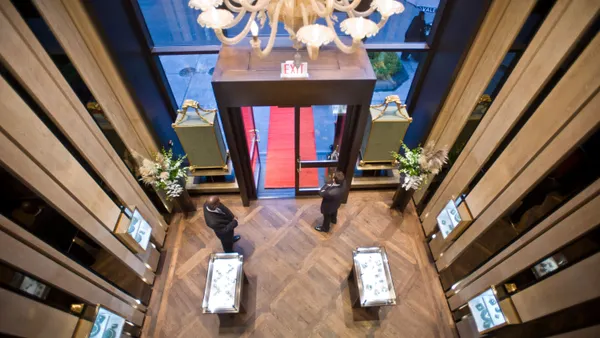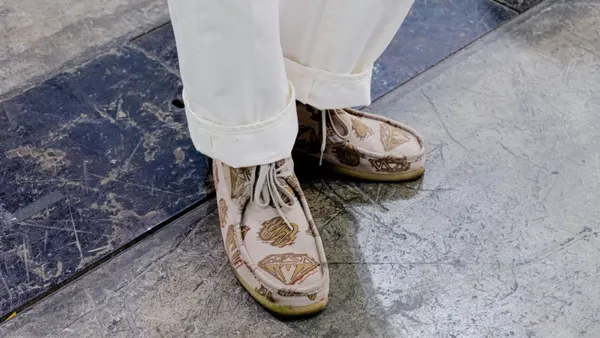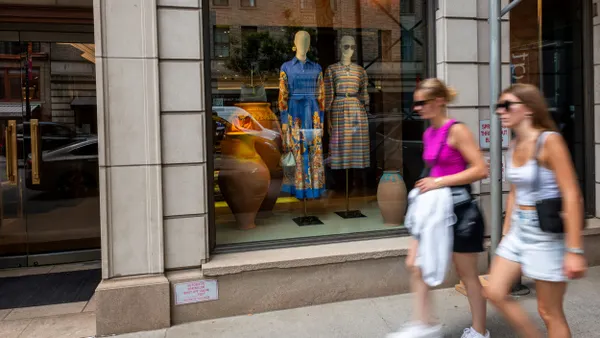Dive Brief:
- Despite their initial optimism about the economy to start the year, U.S. consumers say they plan to spend less on discretionary categories apparel and footwear over the next three months, according to a recent U.S. consumer sentiment report from McKinsey & Company.
- While 49% of respondents said they would spend the same on apparel, 37% said their spending in the category would go down, and only 14% of respondents said they would spend more.
- All consumers, and in particular Generation X and Generation Z, said they also planned to increase their spending on cruises and international flights, which is “in line with seasonal expectations, as many consumers are planning their spring break getaways,” per the survey.
Dive Insight:
Self-restraint seemed to replace fourth quarter seasonal splurging for most consumers, according to the report. Across all generations, 29% said they would splurge on apparel, and 22% said they would indulge in footwear purchases. Baby boomers were planning to exercise the most restraint, with 17% and 10% saying they would splurge on apparel and footwear, respectively.
“As we entered the new year, uncertainty was already a defining feature of the economic landscape — and it has only deepened in recent weeks,” Kari Alldredge, partner at McKinsey and a co-author of the February survey, said in an email.
While optimism about the economy has remained relatively high, spending intentions have declined, particularly for discretionary items, she said.
“This decline was partly seasonal but also reflected growing unease about market conditions,” Alldredge said.
Of the 4,000 people McKinsey surveyed in late January and early February, uncertainty over inflation, as well as rising prices, were among the top reasons for cautious spending.
“I’m planning to spend less simply because prices of basic needs like utilities, eggs, food in general, and fresh items have increased,” one female baby boomer respondent said in the study. “So I’ll probably spend a little less on apparel and other things like shoes, and maybe less on vacations, than I have in the past.”
Alldredge said that the recent stock market correction has further rattled consumer confidence.
“However, it’s important to note that consumer behavior is far from uniform,” she said. “In the near term, we expect this cautious approach to persist, with both consumers and businesses prioritizing financial conservatism.”










